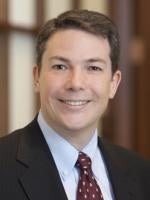We previously posted about City of Cleveland income tax refund claims brought by two former National Football League players that were at the time pending before the Ohio Supreme Court. The former players asserted that the portion of a professional athlete’s salary that should be subject to Cleveland income tax should be the product of that player’s annual salary and the percentage that results from dividing the number of “duty days” spent in Cleveland during the year by the athlete’s total number of duty days during that year. A duty day is any day on which a professional athlete performs a contractual obligation for his or her team, such as playing in a game, traveling to a game, participating in a practice, or attending a team meeting, among other obligations. By contrast, the City of Cleveland divided the number of games the athlete’s team played in Cleveland during the year by the team’s total number of games during that year to determine the percentage of the athlete’s annual salary that was subject to Cleveland income tax.
We also previously posted that on April 30, 2015, the Ohio Supreme Court sustained the player’s Cleveland income tax refund claims by holding that Cleveland’s method of apportionment violated the Due Process Clause of the United States Constitution. This post also noted that on July 8, 2015, the Ohio Supreme Court denied Cleveland’s motion for reconsideration. Now comes the final installment of this trilogy.
After the Ohio Supreme Court rejected Cleveland’s motion for reconsideration, the City attempted the litigation equivalent of “Hail Mary” pass in football and filed a petition for certiorari with the United States Supreme Court. On rare occasion, a Hail Mary pass is completed – like the one the Green Bay Packers completed against the Detroit Lions on December 3, 2015, setting an NFL record for the longest game-winning, game-ending Hail Mary. On even rarer occasion, the U.S. Supreme Court grants a petition for certiorari. Examples to the contrary notwithstanding, Hail Mary passes and cert petitions almost always end in failure, and on November 9, 2015, the Supreme Court dealt the usual fate to Cleveland’s petition.
Cleveland now faces up to $2,400,000 of income tax refunds owed to visiting NFL players (and even more depending on how many visiting Major League Baseball and National Basketball Association players seek refunds) and more than $1,000,000 in annual revenue loses. The entire episode will also have a chilling effect on any state or local taxing jurisdiction that would consider adopting a “games played” methodology for apportioning an athlete’s salary to the taxing jurisdiction. It remains to be seen whether Cleveland, or any other jurisdiction, will enact a duty days allocation formula that weighs more heavily the team’s game days, in cognizance of the fact that a team places far greater value on an athlete’s exemplary performance in games than on whether the athlete shows up for the team’s annual photo (or even a practice). To state the obvious, if an athlete’s game performance is lacking, the team will dismiss the athlete from the obligations that would otherwise fill his or her duty days.



 />i
/>i
